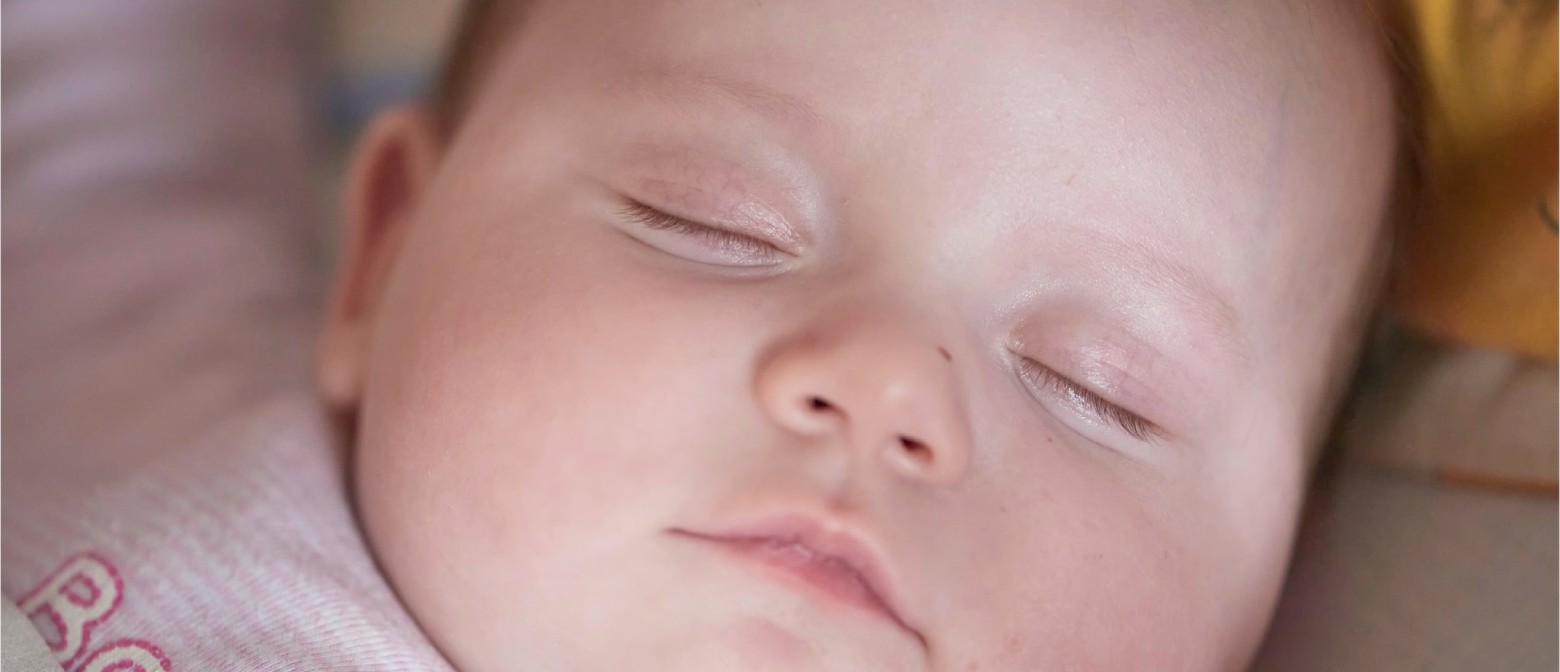Expert Sleep Help For Babies & Young Toddlers (6-18 Months)
Waking every hour? Struggling with naps? You're not alone — sleep at this age can feel like a constant puzzle.
Between 6 and 18 months, your baby is developing at an extraordinary pace. They're learning to crawl, pull to stand, babble, explore, and form strong attachments. These milestones are exciting — but they also come with big changes in brain development, emotional awareness, and sleep patterns.
Many parents notice that just as they've found a rhythm, everything changes again. Shifting wake windows, disrupted naps, frequent night waking, or sudden bedtime battles are all common at this age — what parents often term as sleep regressions. Babies are also becoming more aware of separation and may rely on your presence to fall asleep or resettle.
Big life changes — such as starting nursery, parents returning to work, or family routine changes — can make this stage feel even more unsettled. These transitions can affect the whole family, and it's natural to feel exhausted, confused, or unsure how to support your baby's sleep.
It's also important to remember: every baby has their own unique sleep needs, often influenced by temperament, genetics, and feeding or health history. Your friend's baby might sleep through the night while yours wakes frequently — and that doesn't mean anything is wrong.

At Millpond, we take time to understand your baby's individual sleep story, and create a personalised, gentle plan to guide them — and you — toward more restful nights.
Get Help
We're Trusted By The NHS & More
We are proud to be the largest provider of sleep training for the NHS since 2007, and the only private sleep clinic entrusted to deliver this service.






We train NHS health professionals across the UK
and have trained more than any other organisation since 2007!
Common Sleep Issues At This Age
Daytime Napping Challenges
Your baby's nap needs are changing quickly at this stage, and it can feel hard to keep up. As they begin to transition from three naps to two – and eventually to one – many parents find their baby fights naps, sleeps only for short bursts, or becomes overtired by the end of the day. Understanding your baby's ideal wake windows and adjusting their nap routine can help, but it often takes time and support to get right.
Trouble Settling at Bedtime and Waking Frequently Overnight
Between 9 and 12 months, many babies experience a spike in separation anxiety as they become more aware of being apart from you. This can make it harder for them to fall asleep independently at bedtime and resettle during the night. You might find your baby is suddenly waking every hour or needing more comfort to drift off again — especially after developmental milestones like crawling or standing.
Needing Help to Fall Asleep
It's very common for older babies and toddlers to rely on feeding, rocking, or cuddling to fall asleep. While these soothing methods are natural and often helpful early on, they can sometimes become sleep associations that make it harder for your child to settle or resettle on their own. This can affect both bedtime and night-time waking.
Early Morning Wake-Ups
Many babies at this age wake up ready to start the day far earlier than you'd like – sometimes before 5am. This can happen when they've had too much or too little daytime sleep, or are going to bed overtired. Becoming more alert and curious about their environment can also contribute to these early starts.
Long Night Wakings
Some babies wake in the night and are then awake for long stretches, often seeming wide-eyed and alert. This can be linked to overtiredness, poor sleep pressure, or needing your help to fall back to sleep. It's particularly common during developmental leaps or when nap transitions aren't yet well established.
Older Babies and Toddlers Waking Frequently for Milk or Night Feeds
It's completely normal for older babies and toddlers to wake during the night and want a feed for comfort or reassurance. This isn't always due to hunger — sometimes, feeding has simply become part of how they settle back to sleep. Night feeds can still be a valuable source of comfort, connection, and nourishment, and there's no need to make changes unless it feels right for you.
If you are ready to explore gentle ways to support your child's sleep — including gradually reducing night feeds — we're here to help, always in a way that respects your feeding choices and supports your whole family's wellbeing.
Get HelpWe Can Help!
Gentle, personalised support to help your baby — and your family — sleep better.
We understand just how tough this stage can be. Whether your baby is resisting naps, waking frequently, struggling with long periods awake in the night, or finding it hard to adapt to big changes like starting nursery, it's exhausting — and often confusing — for the whole family.
At Millpond, we don't believe in quick fixes or one-size-fits-all sleep strategies. Instead, we take time to understand your baby's unique temperament, sleep patterns, and family context. With over 30 years of experience and deep expertise in child development and sleep science, we'll create a personalised, step-by-step plan that's both practical and gentle.
Our approach is designed to help your baby sleep more restfully and independently, while giving you the confidence to make changes in a manageable, supportive way. With our help, your baby can build healthy sleep habits — and your whole family can finally get the sleep you deserve.
Contact Us Today
Simply fill in our contact form below or call us on 020 8444 0040
and we'll be in touch to discuss your needs.
